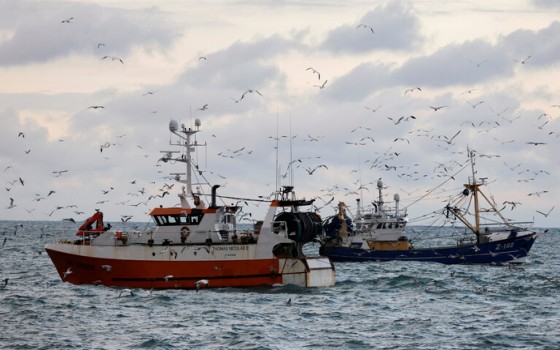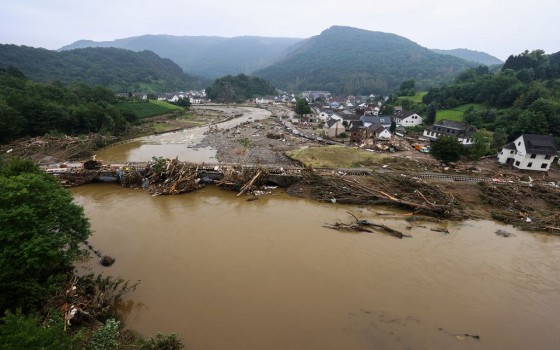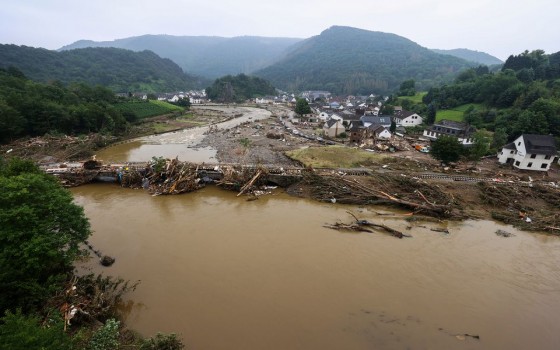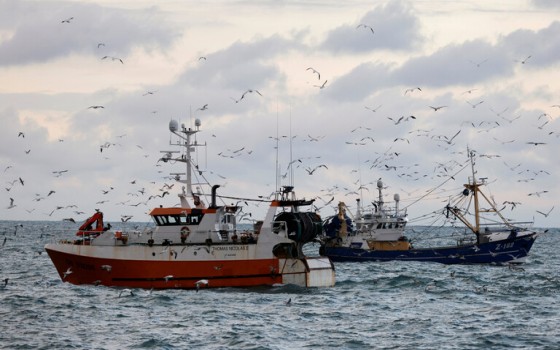
New measures to ensure that key EU products do not contribute to deforestation and forest degradation

- Europe and Arabs
- Wednesday , 16 April 2025 8:25 AM GMT
Brussels: Europe and the Arabs
The European Commission in Brussels has introduced further simplifications to ease the administrative burden of implementing the European Union Deforestation Regulation (EUDR). New guidance documents have been published in preparation for the Regulation's entry into force at the end of this year for Member States, operators, and traders. With these clarifications and simplifications, the Commission also responds to feedback from its international partners.
In doing so, the Commission fulfills its commitment to the European Parliament and the Council, while ensuring regulatory certainty within the limits of the Regulation.
The updated guidance and FAQs will provide companies and authorities in EU Member States and partner countries with additional simplified procedures and clarifications on how to demonstrate that their products are free from deforestation. Both documents reflect input from Member States, partner countries, companies, and industry. This will also ensure consistent implementation of the law across the EU.
The simplifications introduced will be complemented by a Delegated Law, also published Tuesday for public consultation. The law provides further clarifications and simplifications regarding the scope of the EUDR system, responding to requests from stakeholders for guidance on specific product categories. This system will also avoid unnecessary administrative costs for economic operators and authorities.
Finally, the Commission is currently finalizing the National Performance Assessment System through an implementing law. It will be adopted by 30 June 2025, following discussions with Member States.
All these measures combined will reduce administrative costs and burdens on companies by an estimated 30%. This will ensure a simple, fair, and cost-effective application of this key legislation. The EUDR system has already led to positive developments and practical actions to combat deforestation, climate change, and biodiversity loss.
A European statement said that with the new guidance documents, the Commission has introduced a number of simplification measures, for example:
Large companies can reuse existing due diligence data when reimporting goods previously traded on the EU market. This means reducing the need to submit information in the IT system;
An authorized representative can now submit a due diligence statement on behalf of members of corporate groups.
Companies will be allowed to submit due diligence statements annually, rather than for each shipment or batch placed on the EU market. The issue of "assurance" of due diligence implementation has been clarified, so that large downstream companies benefit from simplified obligations (there is now a simple legal obligation to collect Due Diligence Data Reference Numbers (DDS) from their suppliers and use these references to submit their own due diligence statements).
All updated measures are expected to significantly reduce the number of due diligence statements companies must submit, in response to key sector requirements. These simplifications related to due diligence statements aim to ensure easy and efficient data entry for all users.
The Commission has strengthened its dialogue with third countries, companies, civil society, and global partners to facilitate implementation and support preparation through dedicated meetings and online trainings since 2024, in line with our Strategic Framework for Cooperation and Engagement. The Commission will continue to respond to feedback from stakeholders, EU Member States, and partner countries to assist traders and operators with implementation on the ground and provide further guidance, as needed.
In 2024, the Commission has already held more than 300 dedicated meetings on the EU Mechanism for Reducing Flows of Suspicious Goods (EUDR) with stakeholders, including global partners, to facilitate implementation. To support preparations, the Commission has already offered more than 50 webinars, with 15,500 places for online training on the use of the information system, available to all interested stakeholders, supported by online videos in multiple languages and an induction training system.
The Commission has also increased its support to global partners under the Team Europe Initiative on Deforestation-Free Value Chains (€86 million) to support partner countries in transitioning to sustainable, deforestation-free, and legal value chains.
The EU Deforestation Regulation aims to ensure that key commodities on the EU market do not contribute to deforestation and forest degradation, both within the EU and globally. Deforestation and forest degradation are major drivers of climate change and biodiversity loss. Even before its entry into force, the Regulation has enhanced supply chain transparency, brought about positive changes in both the public and private sectors, and opened up new market opportunities for deforestation-free products in the EU.
Last year's versions of the Regulation, including the Quality Guidelines and the Directives, already incorporated industry feedback, offering solutions that effectively reduced bureaucracy for companies while maintaining the objectives of the Regulation. The updates further simplify the application of the rules to companies.
The EUDR Information System opened on 4 December 2024 and is available in all EU languages. Operators can already submit and manage their due diligence data. An application programming interface (API) integrated into the Information System further facilitates the submission and management of due diligence data.
The EU is increasing its support to producing countries, including through a dedicated Team Europe initiative focused on deforestation-free supply chains and specific programs. It also cooperates with major consumer countries to promote the global shift towards sustainable agricultural supply chains.












No Comments Found